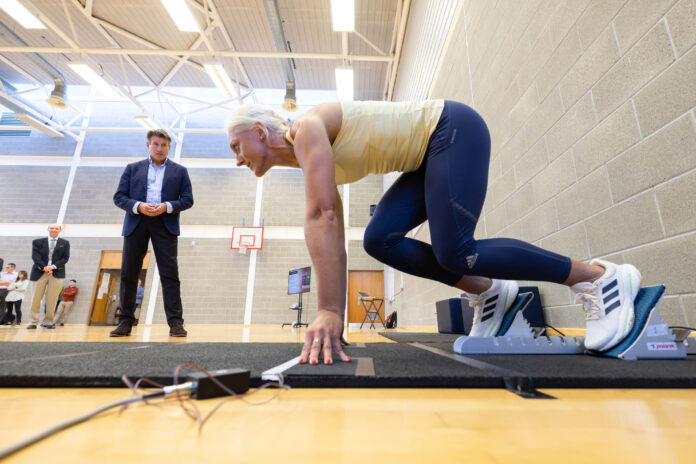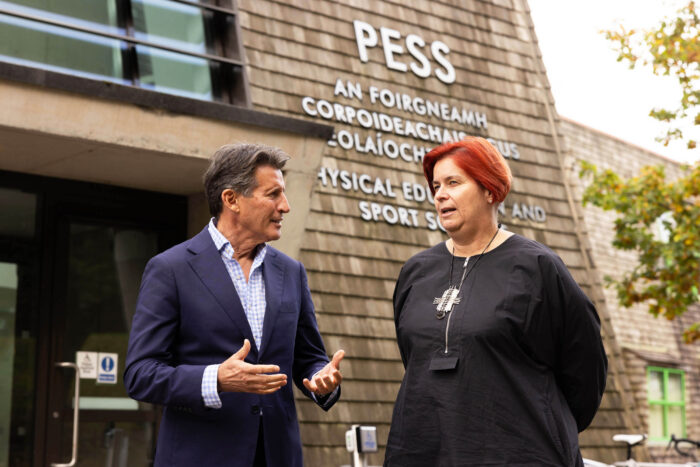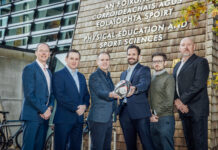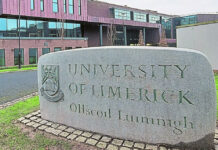
TWO-TIME gold medal Olympian and President of World Athletics Sebastian Coe was on his marks today when he officially opened the new Sport and Human Performance research centre at University of Limerick.
Lord Coe visited the centre, which seeks to advance research in sport and other domains of human performance, and met with staff, students and athletes, before taking part in a public lecture.
He said: “Investing in sport does not just benefit sport as we can see by the work taking place in this research centre at University of Limerick. It is an investment in health, in education, in community care, in technology and science and in social integration.
“There has never been a time where sport and its associated links into health and fitness, both physical and mental, has been more important.
“The Covid-19 pandemic caused huge turmoil around the world which will still take years to properly understand and unravel. Sport, with all its mutations, is a strong foundation to rebuild what has been lost or damaged. It has been both an education and a privilege to be invited to launch this facility today,” Lord Coe added.
During his career as an athlete, Sebastian Coe established his reputation as one of the top middle-distance runners of all time. His achievements included nine outdoor and three indoor world records and two Olympic gold medals.
Since retiring as an athlete, he has undertaken a range of sporting roles, including chair of the Organizing Committee for the 2012 London Olympics, and is now serving his second term as President of World Athletics.
The five key constituents of the new research centre include:
Esports Science under the leadership of Professor Mark Campbell evaluates key performance indicators in Esports. An industry collaboration project, it involves the measurement of skills and expertise in gaming and Esports.
The Irish Rugby Injury Surveillance (IRIS) Project under the leadership of Professor Ian Kenny and Dr Tom Comyns works with the Irish Rugby Football Union to enhance the health and welfare of rugby players by researching injury epidemiology, concussion biomarkers, and referee development.
The Feasibility Analysis of Sprint Start Technologies (FASST) project under the leadership of Professor Drew Harrison seeks to develop new technologies to measure response times and improve the detection of false starts in athletics competitions.
Professor Giles Warrington heads up the Weight Category Sport Science project which develops research methods for sports where body composition, nutrition and energy availability may play an important role in health, wellbeing, and performance.
The Endurance Sports Science research project led by Dr Frank Nugent aims to enhance the health, well-being, training practice and performance of endurance athletes and coaches.










